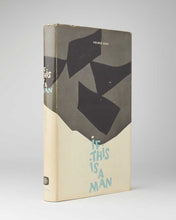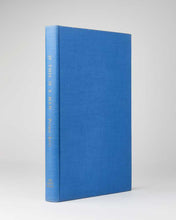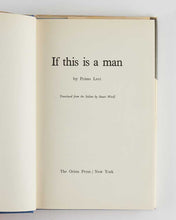LEVI, Primo If This is a Man. New York: The Orion Press. 1959.
8vo. Original blue cloth with gilt lettering to spine; illustrated dust jacket with wraparound design; pp. [vi], 206, [ii]; offsetting caused by pastedowns, bumping to head of dust jacket spine with slight markings to front wrapper; otherwise near fine.
First US edition, later published as Survival in Auschwitz.
“Dawn came upon us like a betrayal, as if the new sun were an ally of the men who had decided to destroy us. . . . Now, in the hour of decision, we said to each other things that are not said among the living.”
The memoir of the Jewish Italian writer Primo Levi, at the time a 24 year old chemist, detailing his arrest following association with a group of anti-fascist partisans during the Second World War, and his subsequent incarceration in Auschwitz. He would remain prisoner from the beginning of 1944 until liberation in January 1945.
Historically notable for its bold clarity (as the blurb of this edition describes, it is a work composed with an "almost biblical simplicity"), and not even without moments of subtle humour, the intense emotional depth of the novel makes If This is a Man a powerful and ever enduring tribute to the resilience of humanity in the face of mass horror.
Portions of this book were supposedly composed "in haste" during his train commutes. Although his experiences in Auschwitz served as the primary impetus for his literature and constitute the central focus of his writing, Levi's oeuvre is also characterized by a considerably unique stylistic diversity. It is especially recognised that when addressing profound suffering, his work is distinct from others in its exhibition of reflective perspective despite handling unimaginable traumas.
In later life, some letters Levi would conclude with the signature, “174517”; the number tattooed on his arm while prisoner at the concentration camp.
In April 1987, Primo Levi committed suicide. “Primo Levi died at Auschwitz forty years later,” the writer Elie Wiesel was known to have announced but as James Wood instead writes in The New Yorker, "Primo Levi was a survivor who committed suicide, not a suicide who failed to survive".
#2122053






